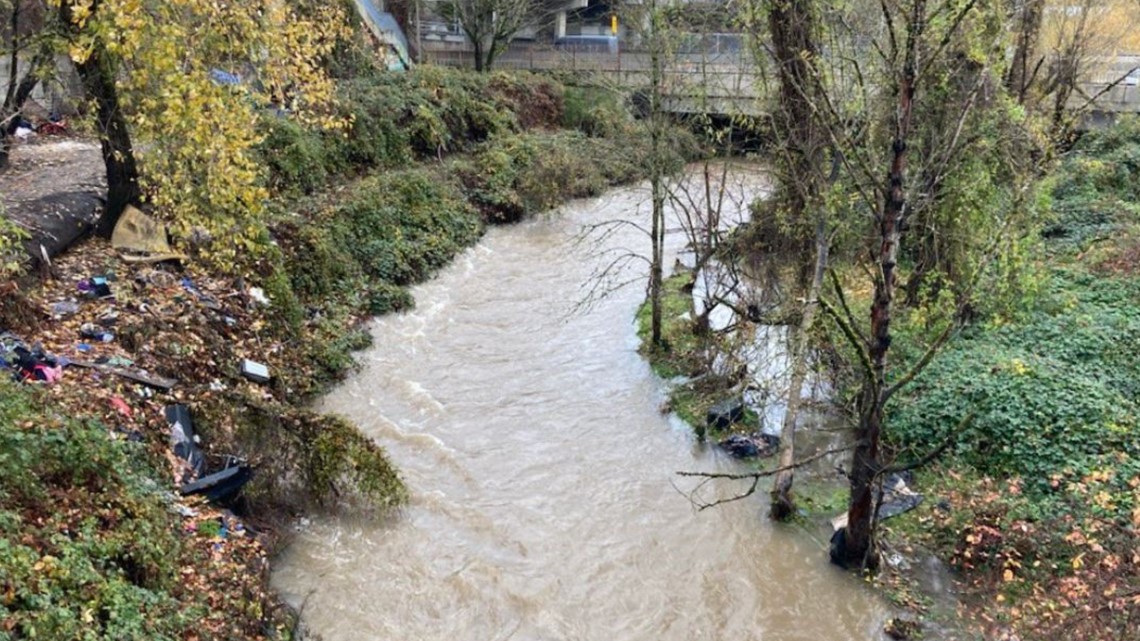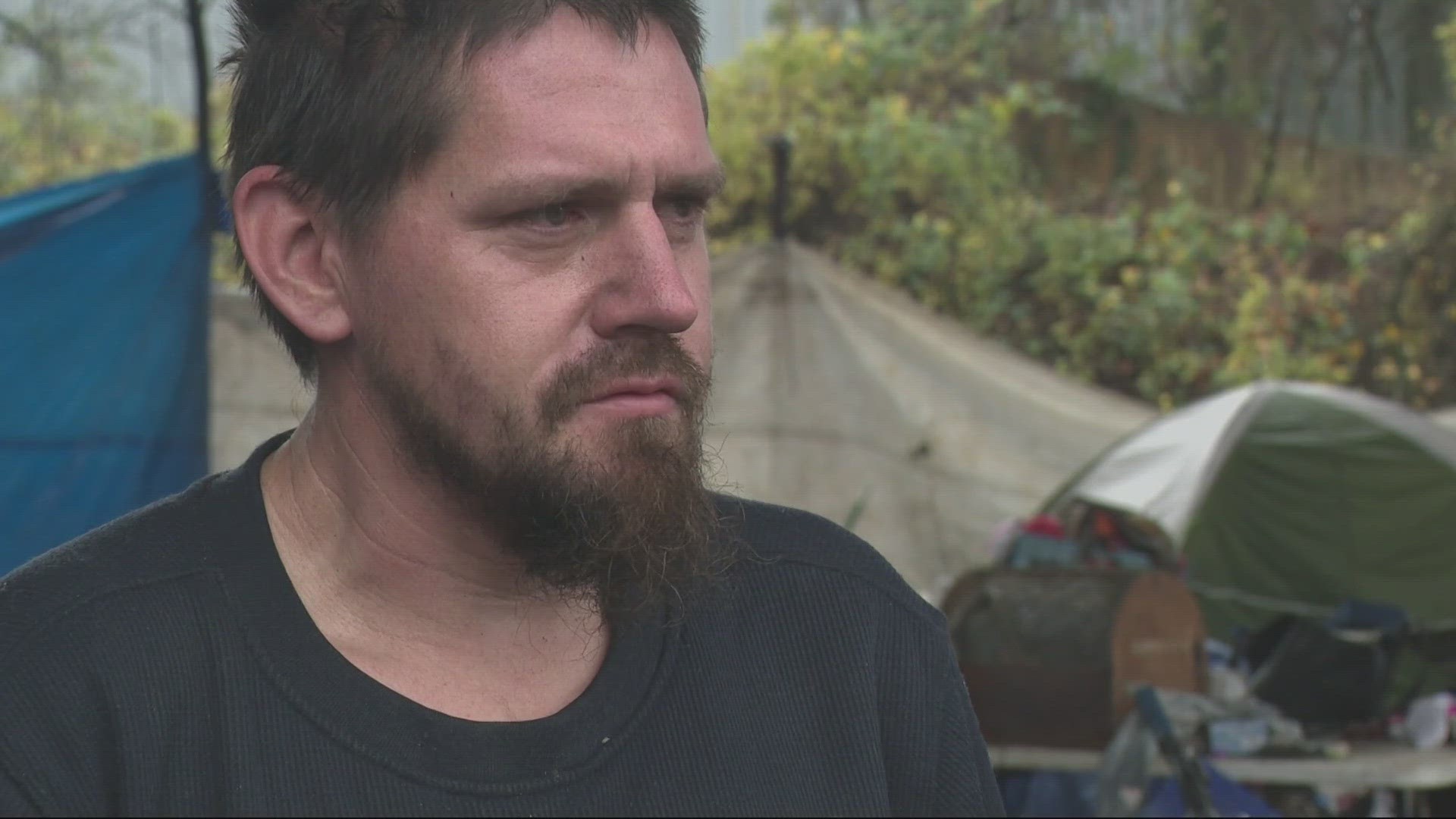PORTLAND, Ore. — Multnomah County rescue crews have recovered the body of a man believed to have drowned after he was swept away in Johnson Creek. He was staying at a homeless camp under an overpass in Southeast Portland just feet from the rising water as heavy rainfall impacted rivers around the region.
“We're all just out here trying to survive just like everybody else,” said his friend, Kenny, who also stays at the camp.
Kenny and another friend had tried to save him.
“He was struggling ... he had asthma really bad, so he couldn't breathe," Kenny said. "Me and my buddy chased him all the way down to almost Milwaukie, followed alongside the creek and couldn't catch him.”
“He's my best friend. How would you feel if you watched your best friend go into the water, knowing you couldn't do anything about it?” he added.
The Multnomah County Sheriff's Office said Johnson Creek was swollen and running swiftly when the man fell in Monday morning.
"Responding police and fire units were unable to locate the man and conditions were deemed unsafe for the dive team to deploy to search," said Deputy John Plock, a public information officer for the sheriff's office. The man's body was found when a property owner called Monday afternoon to report a body in the creek.
“He's my best friend. How would you feel if you watched your best friend go into the water, knowing you couldn't do anything about it?” he said.


On Tuesday, a body was recovered from Bronson Creek in Washington County. A person called the sheriff's office just before 10:30 a.m. to report a body entangled in tree branches within the creek. Investigators are trying to determine how the man ended up in the water and his cause of death.
Warning of rising water dangers
During these types of weather events, law enforcement warns homeless people of the dangers that can come with it. Two to three times a week, the Multnomah County Sheriff's Department targets floodplain areas like off the Sandy River Delta, where a large homeless camp hides in the woods. They encourage those living there to move their campsites about 50 to 100 feet away from the riverbanks.
“We just never know when a surge is going to come through and grab somebody and make it a real dangerous situation and cause a response,” said Portland Fire and Rescue PIO Rick Graves.
He adds the secluded camps along the water make it hard for rescue crews to get to.
“They're hidden; they're not necessarily in our view, so we don't know if we're able to reach everybody, but we certainly make an attempt to educate all populations as to the dangers of what's going on in the waterways right now,” said Graves.

